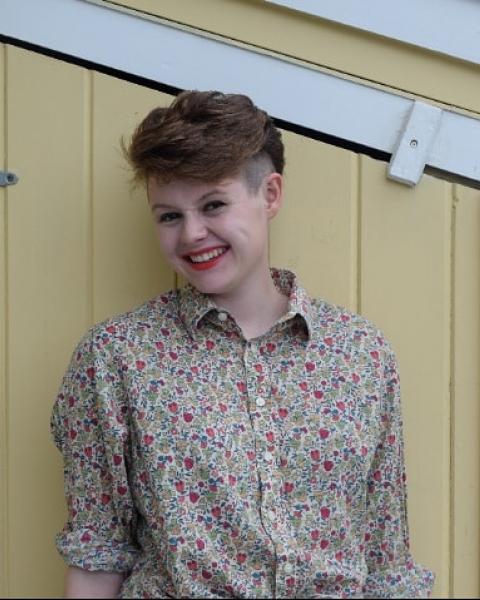Empowering High School Students through Youth Entrepreneurship

This summer, I had the opportunity to work with the UNH Cooperative Extension, the UNH Sustainability Institute, and the Small Business Development Center (SBDC) to begin developing a youth entrepreneurship curriculum for NH high school students. Given my prior experience working with youth and human centered design separately, I was excited to learn how they could be combined to create a program that empowers students to innovate solutions for the issues they care about.
You may be familiar with the UNH Social Venture Innovation Challenge, which has happened annually in the Fall or the last several years. It is an idea-stage competition where entrants identify a problem in their community or elsewhere, and come up with a novel, financially sustainable way to solve it, typically in the form of a framework for a social enterprise. In the past, there has been a Student Track for all NH college students, and a Community Track for NH residents and UNH alumni anywhere in the world. Many ambitious high school students entered the Community Track, and were met with an unfair level of competition from community members who were much older or working on their hundredth idea. To level the playing field, a High School Track was introduced a few years ago, which took place during the Spring rather than in the Fall. In Spring 2020, we received enough funding and interest to create a more robust curriculum leading up to the competition, which has been my primary project this summer and will continue to be so for most of this academic year.
The curriculum is comprised of six main sections that cover: identifying an issue, an overview of human centered design, the first three steps of the design process (as the last two steps, implementation and iteration, are not required for the competition), and guidelines for entry.
Each section has a variety of materials including short readings, videos, and activities to appeal to all types of learners. I have also taken special care to make the curriculum as accessible to disabled users as possible, because as a deaf student, I know I would appreciate the same.
My hope for this project is that students who struggle to find inspiration and motivation in traditional classroom settings will find this to be an engaging and empowering opportunity to explore topics they care about. My belief has always been that students who face some of society’s most pressing issues daily hold some of the keys to solving them. I look forward to seeing this curriculum in action (albeit in a modified implementation due to COVID) over the course of this academic year.
I am incredibly grateful for the guidance that my supervisor at Cooperative Extension, Jared Reynolds, has provided me with thus far. His patience, willingness to answer questions, and ability to break down complex issues has been incredibly helpful to me. I am really excited to continue learning from him as the project goes on. I would also like to thank Faina Bukher, Fiona Wilson, Cathy Meyer, and Liz Gray for their leadership on this project. If you’d like to stay up-to-date on this project, watch for updates on the UNH Changemaker Collaborative Website. I look forward to continuing work on this project and using it as an opportunity to continue refining my skills in human centered design for my own work going forward.
